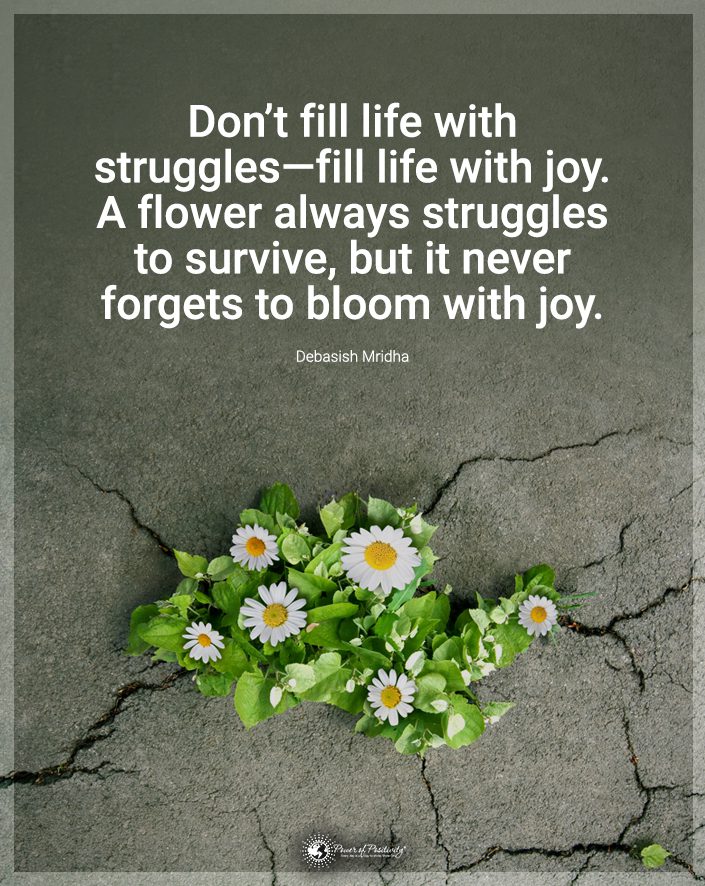Why can’t narcissists have stable love relationships?
Have you ever wondered why some people quickly fall in and out of love? You might notice this when you think about a narcissist. Narcissism, a term rooted in the Greek mythology of Narcissus, who fell in love with his reflection, is today recognized as a personality disorder.
Narcissistic personality disorder is characterized by:
- An over-the-top sense of self-importance
- Constantly demanding attention and admiration
- Troubled relationships
- A lack of empathy for others.
But how does this translate into their romantic relationships? Narcissistic behavior patterns can be complex and profoundly impact their engagements with partners. Understanding these patterns can provide insights into why relationships with narcissists may sometimes seem intensely passionate and promising initially, only to collapse unexpectedly and swiftly.
Why Do Narcissists Fall Out of Love So Fast?

1 – Idealization and Devaluation Cycle
At the heart of many narcissistic relationships is what psychologists call the “idealization-devaluation cycle.” Initially, a narcissist might shower their new partner with praise, affection, and gifts, making them feel incredibly special and valued. This phase is full of intense admiration and attention; the partner feels uniquely loved and cherished. However, this stage is often not sustainable because it is based on the narcissist’s unrealistic expectations of their partner and the relationship.
When these high standards are unmet or the novelty wears off, the narcissist swiftly shifts to devaluation. The same partner who was once perfect is now seen as deeply flawed. Criticism and emotional withdrawal replace the previous admiration, confusing and hurting the partner. This drastic change often happens quickly and can be triggered by seemingly minor issues. Then, the narcissist’s skewed perception magnifies them. Understanding this cycle can help those involved with narcissism to recognize the signs early on and manage their expectations of the relationship.
2 – A Narcissist Fears Vulnerability
Another reason narcissists may fall out of love quickly is their fear of vulnerability. Vulnerability requires emotional exposure involving risks such as being hurt, rejected, or seen in a less flattering light. For narcissists, whose self-esteem is superficial and highly vulnerable to criticism, opening up in this way can be terrifying. The closer a relationship gets, the more intimacy it demands, and the higher the stakes are for a narcissist to lose their most guarded asset: their controlled, crafted image.
Thus, when a relationship starts to demand genuine intimacy and deep emotional connection, a narcissist is likely to pull away. This retreat is often a defense mechanism to prevent what they perceive as a threat to their self-image. The fear of being deeply known and potentially exposed as imperfect can be too much, leading them to detach from their partner emotionally and eventually fall out of love.
3 – Need for Admiration
Narcissists thrive on admiration and praise. Their self-esteem depends significantly on being admired and validated by others, particularly their romantic partners. This continuous need for admiration can set a high bar for their partners. As a result, partners find it exhausting to keep up with such demands. Narcissists often feel disillusioned when the stream of constant admiration inevitably ebbs—as it does in all genuine, maturing relationships. The decline in external affirmation from their partner can make them feel less loved and valued. Thus, it triggers their search for someone new who will admire them without reservation.
This need for constant admiration makes maintaining long-term, realistic relationships challenging for narcissists. They may perceive their partners’ inability to endlessly supply admiration not just as a flaw in the partner but as a personal slight, leading to rapid cooling of affections and subsequent fallout of love. This pattern often results in a series of short-lived relationships for the narcissist, each marked by an intense beginning that fades quickly as the reality of mutual respect and reciprocal emotional investment sets in.
4 – The Narcissist Has a Lack of Empathy
One of the defining traits of narcissism is lacking empathy. Empathy—an ability to understand and share the feelings of another—is crucial for forming deep, meaningful connections. However, for narcissists, empathy is often markedly absent. This deficiency doesn’t just make them seem uncaring or insensitive; it fundamentally prevents the development of genuine emotional bonds. Without empathy, a narcissist is unable to see things from their partner’s perspective or truly connect with their partner’s emotional experiences.
This barrier makes it easy for narcissists to detach from relationships. Since they do not fully grasp or value their partner’s emotional needs, they can fall out of love as swiftly as they fell in, especially when the relationship demands more emotional reciprocity than they can give. The inability to engage emotionally on a deeper level leads to relationships that are superficial and often short-lived, making any decline in the relationship’s excitement or satisfaction a potential deal-breaker for the narcissist.
5 – Relationship as a Power Dynamic
Narcissists often perceive relationships not as partnerships of equals but as arenas for exerting control and dominance. To a narcissist, a relationship is another platform to validate their sense of superiority. Partners are often seen not as equals but as admirers or even subordinates who are there to elevate the narcissist’s ego and status. This power dynamic is fundamentally at odds with the concept of a loving relationship, which is built on mutual respect, trust, and support.
When a partner challenges the narcissist’s authority or seeks equality in the relationship, the narcissist might react with tactics such as gaslighting, belittling, or emotional manipulation to regain control. Such dynamics are damaging and can lead to a rapid deterioration of the relationship once the partner refuses to comply with the unequal terms set by the narcissist, resulting in the narcissist quickly falling out of love when they no longer feels in complete control.
6 – The Narcissist Has a Fear of Commitment
Commitment in a relationship means agreeing to a future together, which involves planning, compromise, and, most importantly, stability. For narcissists, this can be unnerving. They often harbor a phobia of commitment, not because they are incapable of long-term planning but because deep commitment reduces their perceived autonomy and control. Being tied down in a long-term, stable relationship may threaten their freedom to seek admiration from new sources or escape when the relationship no longer serves their needs.
This fear leads many narcissists to engage in a pattern of short, intense relationships. They may fall in love quickly and passionately. Still, as soon as the relationship demands a serious commitment, they back away, often sabotaging the relationship to escape the responsibilities of genuine commitment.
7 – Boredom and Need for Excitement
Narcissists are often driven by a constant need for new and exciting stimuli, a trait that can make them thrilling partners initially. Their quest for novelty can bring a lot of energy and enthusiasm to the early stages of a relationship. However, as the relationship matures and the initial excitement wanes, boredom sets in quickly. Without constant stimulation, narcissists lose interest and begin to look elsewhere for their next emotional or sensory high.
This relentless pursuit of excitement means that maintaining interest in the steady, often routine work of building a long-term relationship can be particularly challenging for narcissists. Their need for novelty can lead them to seek out new partners who can provide the excitement they crave, causing them to fall out of love fast with their current partners once the novelty fades. This pattern not only hampers their ability to build lasting relationships but also leaves a trail of confused and heartbroken partners.
8 – External Validation (Besides Love for Its Own Sake)
Narcissists’ self-esteem heavily depends on how others view them, so they rely significantly on external validation rather than finding satisfaction from within. This dependency can deeply affect their romantic relationships. When the relationship is new, and the narcissist receives plenty of compliments, admiration, and attention, they feel highly valued and content. However, as the relationship progresses and the inevitable routine sets in, the constant external validation they crave can decrease.
Partners of narcissists might find themselves in a never-ending cycle of trying to prop up the narcissist’s ego. When they fail to provide the needed amount of admiration, or when the narcissist perceives that they are being valued more by others outside the relationship, the narcissist’s interest and feelings can quickly diminish. This reliance on external sources for self-esteem makes it difficult for them to maintain deep, meaningful relationships. That’s because relationships require mutual give-and-take, leading them to fall out of love as soon as they feel inadequately validated.
9 – Projecting Their Issues
Projection is a defense mechanism where individuals ascribe feelings or traits they find unacceptable to someone else. Narcissists frequently use projection to cope with their insecurities and shortcomings. In romantic relationships, this means that narcissists often project their faults onto their partners. For example, a narcissist who is unfaithful may accuse their partner of infidelity.
This behavior can create a harmful environment in which the partner is constantly accused of possessing traits or behaviors that are the narcissist’s issues. As these projections increase, the relationship deteriorates under constant conflict and misunderstanding. The narcissist becomes dissatisfied, believing their distorted perception of their partner. Therefore, they fall out of love, driven by their created discomfort and disappointment.
10 – Lack of True Self
A profound issue with narcissists is their lack of a stable, true self. Narcissists often construct their identities based on how they want to be seen by others rather than who they are. This lack of genuine self-perception leads to relationships that are not rooted in authenticity but are instead based on an artificial persona that the narcissist projects.
The lack of a true self also means that narcissists are constantly seeking to fill a void with external approval and relationships that highlight their perceived grandeur. However, because these relationships are not based on authentic feelings but on maintaining their idealized self-image, they are inherently unstable. Without a stable self-concept, narcissists are unable to engage in the genuine give-and-take that real love requires, leading them to quickly fall out of love when the relationship no longer serves their self-interest.

Final Thoughts on Why a Narcissist Cannot Have a Long-Term Love Relationship
Understanding why narcissists fall out of love quickly is crucial for anyone who finds themselves in a relationship with someone exhibiting these traits. Recognizing the signs of narcissistic behavior can help individuals manage their expectations and safeguard their emotional well-being. For those dealing with such situations, remember to prioritize your emotional health and recognize when a relationship no longer contributes positively to your life. Offer yourself compassion and seek support if needed. You are not alone; understanding these dynamics is crucial for healthier, more fulfilling relationships.
The post 10 Reasons a Narcissist Falls Out of Love So Fast appeared first on Power of Positivity: Positive Thinking & Attitude.





